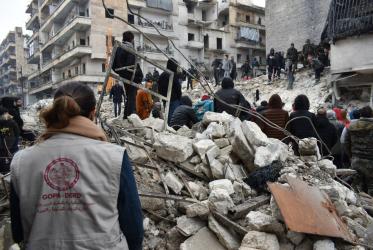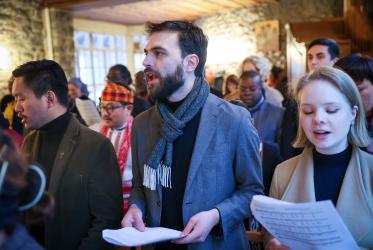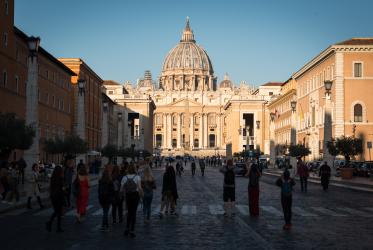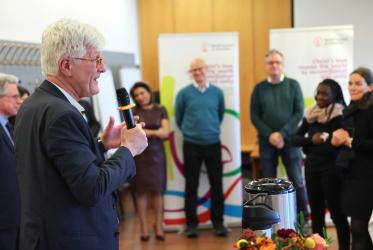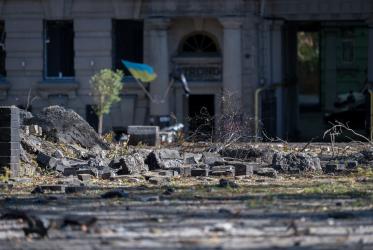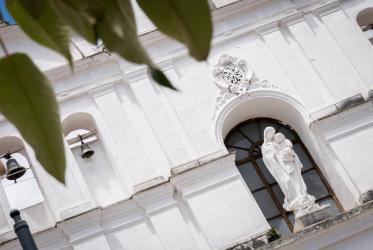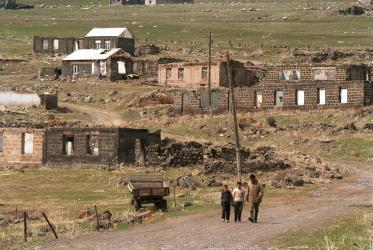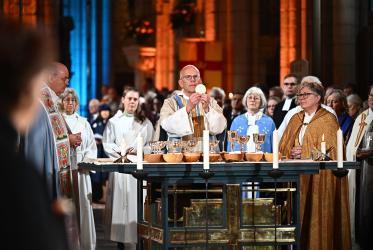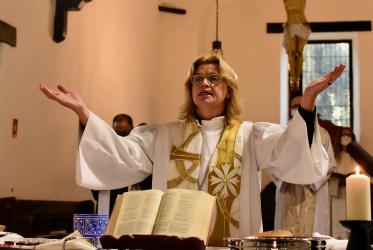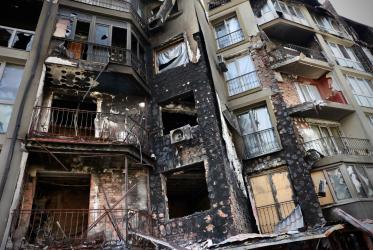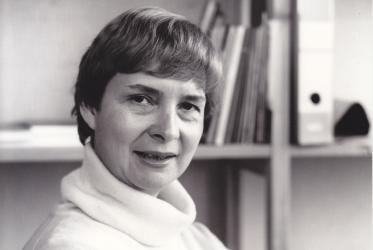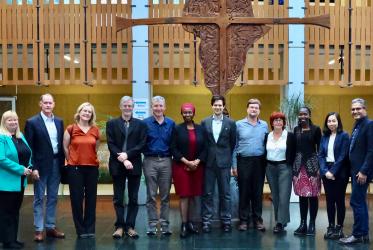Displaying 161 - 180 of 2107
Students from 19 countries complete ecumenical studies in Bossey
31 January 2023
Celebration of unity draws churches in Geneva together
24 January 2023
WCC moderator meets WCC staff to strengthen future collaboration
20 January 2023
WCC denounces continuing attacks on civilians in Ukraine
16 January 2023
In Chile, “Churches’ ministry of reconciliation is key”
29 November 2022
WCC invites all to World AIDS Day prayer service
28 November 2022
